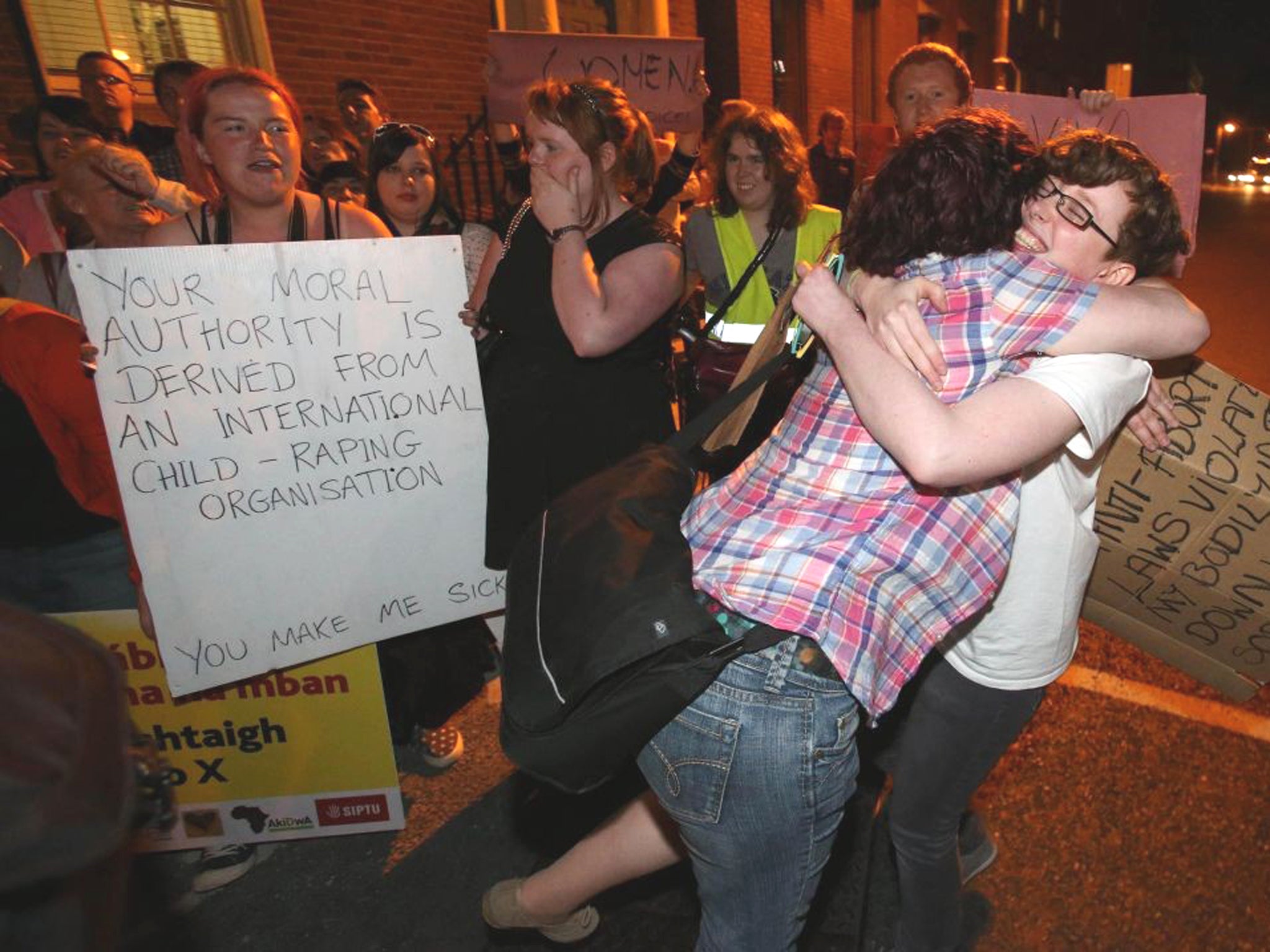Ireland passes historic legislation to allow 'life saving' abortions
Days of fierce protests and long Dail debates plagued the passage of the Protection of Life During Pregnancy Bill

Your support helps us to tell the story
From reproductive rights to climate change to Big Tech, The Independent is on the ground when the story is developing. Whether it's investigating the financials of Elon Musk's pro-Trump PAC or producing our latest documentary, 'The A Word', which shines a light on the American women fighting for reproductive rights, we know how important it is to parse out the facts from the messaging.
At such a critical moment in US history, we need reporters on the ground. Your donation allows us to keep sending journalists to speak to both sides of the story.
The Independent is trusted by Americans across the entire political spectrum. And unlike many other quality news outlets, we choose not to lock Americans out of our reporting and analysis with paywalls. We believe quality journalism should be available to everyone, paid for by those who can afford it.
Your support makes all the difference.The Irish Government has passed legislation to allow abortion in limited circumstances for the first time, marking an end to days of parliamentary debate and public protests.
The landmark laws, which enshrine a woman's right to a termination if her life is at risk, including from suicide, were eventually supported by the vast majority Ireland’s politicians – passing comfortably after a second day of late night sitting at the Dail parliament with 127 members in favour and 31 against.
It did, however, cause the demise of the Minister for European Affairs, Lucinda Creighton, whose long-anticipated revolt with a small pocket of defiant backbenchers failed to generate a meaningful opposition.
The historic vote coincides with the release of shocking figures that reveal 11 women travelled from Ireland to Britain every day for an abortion last year. Taoiseach Enda Kenny said it was time the women of Ireland have the rights they deserve enshrined in law.
"We had 21 years of inaction," Mr Kenny said. "What's going on here is medical clarity and legal certainty for the women of our country who have had a constitutional right conferred upon them."
The Protection of Life During Pregnancy Bill 2013, which was drawn up following the tragic death of Indian dentist Savita Halappanavar, has proved hugely controversial. Among the new provisions for abortion is the rule that a woman may seek termination if three doctors unanimously agree she is suicidal.
Ms Creighton, the exiled junior minister, refused to support the measure and called for alternative therapies to be offered instead. She automatically lost the party whip after voting against the Government in support of an amendment to remove the suicide clause from the legislation.
"I'm very sad," Ms Creighton said, after casting the vote that sealed her self-imposed exile. "But at the same time I feel a bit relieved because this is obviously something that's been weighing on everybody's minds for months and months. It's no exaggeration to say, I think, an awful lot of people have really struggled to make a decision on how they would vote in this legislation."
Parliamentarians have been dogged by both pro-life and pro-choice protesters, who have gathered in demonstrations on the streets of Dublin for days. Concluding a campaign of picketing politicians who supported the Bill, pro-life activists held vigils outside Leinster House as the vote was recorded last night.
The legislation follows a 1992 judgment by the Supreme Court in Dublin, known as the X case, where judges ruled that abortion should be allowed if there was a threat to the mother's life, including suicide. The case involved a 14-year-old rape victim who became pregnant and was refused permission by Irish authorities to travel to the UK for an abortion.
The bill will next be considered by the Seanad - the upper house of parliament - where it will almost certainly be passed. After that, provided there are no demands for further amendments, the legislation will be brought to President Michael D Higgins who will sign off on it and enshrine it into Irish law.
Additional reporting by PA
Subscribe to Independent Premium to bookmark this article
Want to bookmark your favourite articles and stories to read or reference later? Start your Independent Premium subscription today.
Join our commenting forum
Join thought-provoking conversations, follow other Independent readers and see their replies
Comments